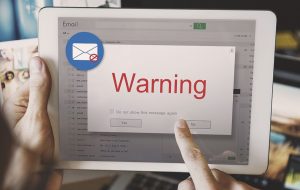In an age of globalisation and personalised experiences, it’s becoming increasingly hard to come up with “universal experiences” which all of us share. At the same time, receiving phishing emails and spam are almost certainly one such experience – albeit a negative one. The Internet has helped to bring the world together. It has also made it far easier for scammers and would-be hackers to steal your personal information and money. All it takes is one ill-fated click to send your life into a downward spiral of scams, viruses, and identity theft.
What’s more, even if you yourself are savvy enough to spot a fraudster, computer and Internet literacy has lagged far behind Internet access. As such, while you might know what’s legit and what’s not, the same might not be true for Gran. You love helping her out, but you don’t entirely trust her Internet literacy skills, don’t want to see her scammed, but simply can’t help her out every time she has a question about what she should and shouldn’t click.
This guide, therefore, can allow you both to read up on how to spot a phishing email.
Don’t Click Links
First and foremost, you want to make sure that you do not click on any link unless you are absolutely, positively, 100% sure that it is safe. Clicking on a mystery link is the fastest way to open yourself up to everything from a computer virus to identity theft and ransomware. Even if you are only the tiniest bit concerned about the validity of a link, don’t click. Do some research, and only click if you are certain the link is safe and valid.
Don’t Respond to Money Requests
Has a friend suddenly become “stranded” in a foreign country, and is asking for a few hundred pounds, with the promise that they’ll repay you as soon as they get back? This is a popular phishing scam today. If you haven’t heard anything about a friend’s mystery trip to Ukraine or Ghana, you’ll want to give them a call and ask if they’ve actually sent you a message before clicking on anything. Even if you know the email is a fraud from telltale signs such as poor spelling and grammar, tell your friends via another form of communication, such as text, WhatsApp, or Facebook – their bank accounts may have been hacked, and they’ll need to check with their bank as quickly as possible.
Too Good to Be True
Have you just “won a free iPhone,” a “free cruise to the Bahamas,” or any normally-expensive thing that’s suddenly and mysteriously “free” and yours for the taking? You almost certainly haven’t “won” anything – and if you wind up clicking on these “offers,” it’s almost certainly a scammer who will be hitting the jackpot, and at your expense. As in life, you’ll want to exercise basic common sense – if the offer espoused in an email sounds too good to be true, it almost certainly is.
These tips can help keep you, your Gran, and anyone else you know safe while sorting out messages which appear all too “phishy” in your email inbox.




